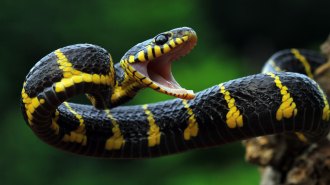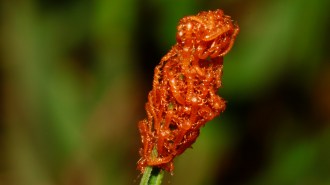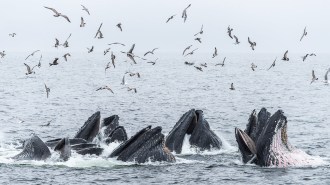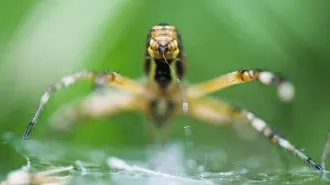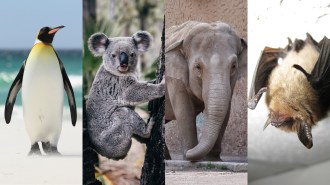The first study of how African cicadas keep themselves warm enough to sing shows that they depend on muscle power much more than North and South American cicadas do.

When most Western Hemisphere cicadas get chilly, they move to a sunny spot and bask, explains Allen F. Sanborn of Barry University in Miami Shores, Fla. Males, in particular, need to keep warm so they can sing to win mates.
Sanborn and other scientists, however, have found a few cicadas in North and South America with a backup plan. When sunlight is hard to come by, these cicadas warm themselves by clenching their flight muscles.
By measuring the insect’s body temperatures under various environmental conditions, Sanborn and his colleagues determined whether a cicada uses these large muscles to warm up.
In an upcoming Naturwissenschaften, the researchers describe such experiments with African cicadas of the genus Platypleura. Three of the species tested were primarily self-warmers and one was a sunbather, the scientists found. Unpublished data identify even more self-warming Platypleura species. This abundance of self-warming species in one cicada genus is unusual, Sanborn says.
Self-warming isn’t a strategy to undertake lightly, says Sanborn. Adult cicadas don’t get much energy from the plant sap they suck, so a muscle surge depletes their reserves and can shorten their lives.
The self-warming African species often sing at dusk, a chilly hour but one with fewer predators around than during daytime. Most unusual, says Sanborn, are the cicadas that rely on muscle heat even in daylight. They seek shade, Sanborn says, a tactic that also could protect them from predators.
****************
If you have a comment on this article that you would like considered for publication in Science News, send it to editors@sciencenews.org. Please include your name and location.
